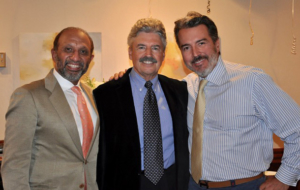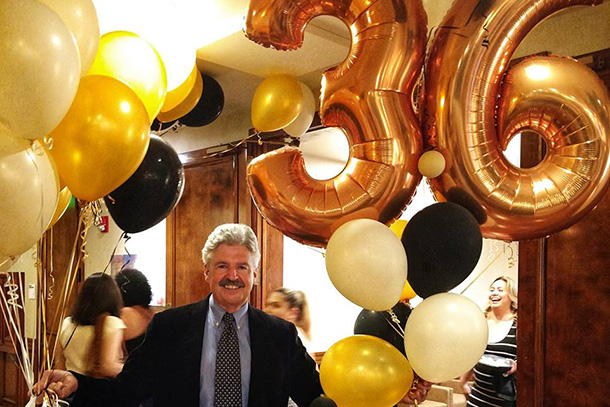When Stuart D. Boyd, MD, professor of urology at the Keck School of Medicine of USC, joined the Catherine and Joseph Aresty Department of Urology in 1982, he came with the goal of improving the quality of life for men who survive urologic cancer.
Now 36 years later, Boyd is retiring from the department having achieved what he set out to do: help men maintain continence and sexual function following cancer treatment and perfect other urinary reconstructions for problems resulting from surgery or radiation.
“I came to USC to get reconstructive urology going,” said Boyd, who was the third doctor to join the new urology department, which was only two years old at the time. “I was concerned from the beginning with improving quality of life for these patients.”
Prosthetic devices to maintain continence and erectile function were just coming on the market at the time Boyd joined the Keck School faculty and he became one of the pioneers who developed the best surgical techniques for implanting artificial sphincters and penile prostheses.
“He took a difficult and unreliable surgery and made it standard and routine,” said Inderbir Gill, MD, chair and Distinguished Professor of Urology and founding executive director of the USC Institute of Urology.

From left, Inderbir Gill, Stuart Boyd and Rene Sotelo celebrate at a retirement party for Boyd. (Photo/Courtesy Rene Sotelo)
Gill added that these devices sometimes need to be replaced, which can be more difficult than the initial implantation because of scarring from earlier procedures or radiation treatment. Boyd also developed these surgical techniques, Gill said, and is among the world’s most experienced surgeons in performing complex revision prosthetic surgery.
“It is for this reason that his patients come from around the country and around the world,” Gill said.
In spite of being the first of Keck Medicine of USC’s faculty practices, thanks to the Boyd and his colleagues, the Department of Urology quickly developed a reputation as a center for innovation that belied the department’s small size.
Boyd’s expertise in remains one of the reasons that the department has a national and international reputation. Doctors from all over the world visit Keck Medicine to learn the techniques that Boyd developed and he has traveled the globe to share his expertise with doctors on several continents. For his grounding efforts, Boyd was awarded the F. Brantley Scott Award of Excellence for lifetime achievement in reconstructive urologic surgery at the 2017 American Urological Association meeting.
As he prepares to leave Keck Medicine at the end of June, Boyd said that his time on the faculty has been both challenging and rewarding.
“It has been a lot of sweat and tears, but it has also been immensely gratifying and helped me develop innumerable lasting friendships,” he said.
— Hope Hamashige


